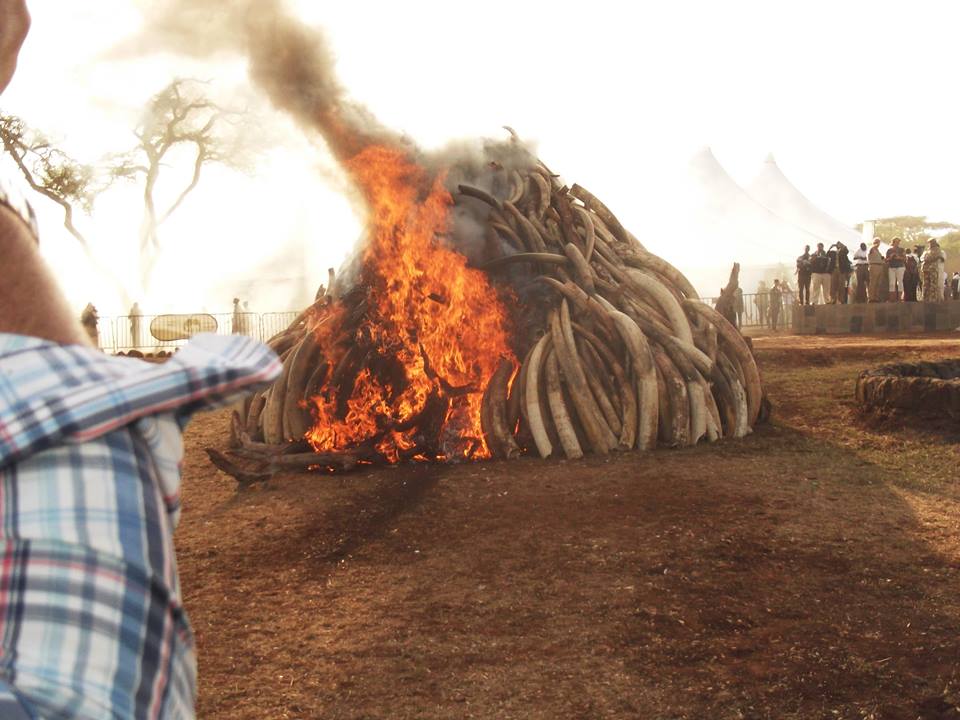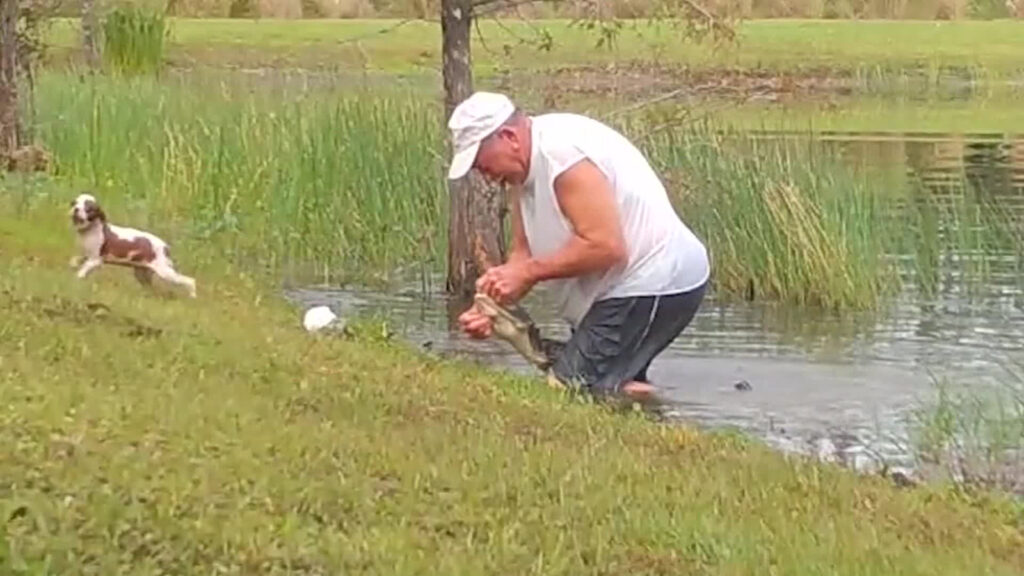A heartbreaking scene played out in Nairobi National Park. That’s where 15 tonnes of ivory was set ablaze to mark World Wildlife Day on March 3. But the gesture does offer some hope.
Kenya’s president, Uhuru Kenyatta, who oversaw the torching of pyre, once again issued his country’s call to dismantle the international trade in ivory and put an end poaching, which is wiping out elephants (and other iconic species) around the world. The sombre ceremony was attended by conservation groups, politicians and diplomats all united in the sending the same message.
“We want future generations of Kenyans, Africans and the entire world to experience the majesty and beauty of these magnificent beasts. Poachers and their enablers will not have the last word. We hope the
rest of the world will follow our action in the same manner,” Kenyatta said in a statement.
H.E @UKenyatta torches 15 Tonnes of Ivory at Nairobi National Park. #WanagriMaathaiDay #WorldWildlifeDay pic.twitter.com/Z0bZ6RCJBf
— PSCU Kenya Digital (@PSCU_Digital) March 3, 2015
In 1989, Kenya became the first nation to destroy stockpiled ivory. Then president Daniel arap Moi torched 12 tonne of ivory tusks. France, the United States, Belgium, Zambia, Gabon, the Philippines, Hong Kong and China would go on to do the same with their confiscated ivory.

Officials with Born Free Foundation, a non-governmental organization dedicated to the protection of wildlife, were defiant in marking the stark event.
“I am proud that my country continues to demonstrate such incredible conservation leadership and has raised its flag against poaching and the international ivory trade,” Tim Oloo, Born Free Foundation’s manager in Kenya said in a statement. “Today’s action celebrates the dedicated efforts of the Kenya Wildlife Service and other agencies and it reinforces our nation’s determination to end the slaughter of elephants by ending all speculation about a future legal ivory trade. We want none of it.”
Kenya has been a vocal opponent to those who call for the sale of stockpiled ivory. Experts say selling the confiscated goods would only lead to more elephants being slaughtered. Born Free Foundation’s founder, Will Travers, said Kenya’s courage to prevent ivory from being traded should be applauded.
“The rest of the world needs to pay attention and take action through providing support for increased anti-poaching efforts; coordinating measures to disrupt and destroy the organised criminal gangs behind the illegal trade; and, vitally, agreeing to end all domestic sales of ivory – new, old, carved or raw – so that illegal, smuggled ivory can no longer be passed off as legitimate,” he said in a statement.
President Kenyatta echoed that sentiment and called for greater international investment and cooperation to “win the war on the ivory trade.”

“Twenty five years after the historic banning of ivory trade, new demand from emerging markets once again threatens Africa’s elephants and rhinos,” he lamented.
But environmental groups rejoiced as Kenyatta pledged to destroy his country’s massive ivory stockpile – more than 100 tonnes – over the next year.
International leaders are set to meet in Kasane, Botswana later this month, to review the status of the world’s illegal wildlife trade and what progress – if any – has been made.
Photo Born Free Foundation/Facebook





Comments